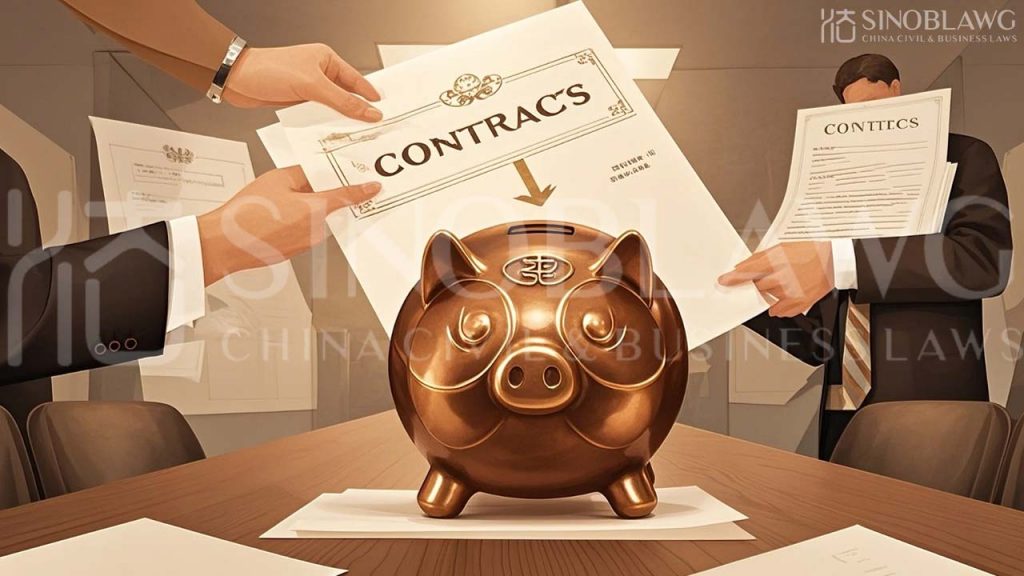A client from the Middle East approached me recently seeking legal advice regarding a dispute with a Chinese supplier.
The client entered into an English-written contract with the Chinese supplier under which the supplier would supply the contractual goods at agreed price to the client. The contract stipulated that client shall make a “deposit” with the supplier to ensure that the contract will be duly performed by both parties. After execution of the contract, the client made the deposit with the supplier. However, shortly after payment of the deposit, the supplier gave a notice to client that because of price hike in raw materials recently, they had to raise the contract price. Otherwise, they could not proceed with the contract performance. Though disappointed, client did not want to pursue contract breach liabilities on the part of supplier but to take back its deposit. However the supplier did not want to return the deposit.
It is actually a quite simple and straightforward case. My immediate question popping up in mind is whether the contract had defined the meaning of the word “deposit”.
Deposit, as explained in Black’s Law Dictionary, has several meanings, among which No. 3 definition fits the facts most. The No. 3 definition reads: a deposit means the “money placed with a person as earnest money or security for the performance of a contract. The I trace to the definition of the phrase “earnest money: a deposit paid (usually in escrow) by a prospective buyer (esp. of real estate) to show a good-faith intention to complete the transaction, and ordinarily forfeited if the buyer defaults. So it is my understanding from the legal definitions by the Black that a deposit, as a legal terminology in English, is intended to bind the depositor (generally the buyer) only, and it does not mean a penalty on the seller if the seller defaults.
Similarly, in Chinese laws, we have a similar mechanism, termed as “定金“ (Ding Jin). A Ding jin in Chinese legal context is however a double-edged sword. If the buyer (depositor) defaults under the contract, the deposit will be forfeited, and if the seller (receiver/holder of deposit) defaults, he will have to return two times the deposit to the buyer. The big difference between Chinese “Ding jin” and the English “deposit” is the effect or consequence of default by the receiver/holder of deposit. Ding Jin is not an equivalent word for “Deposit”.
That said, the critical issue with the clients dispute with the supplier is whether client will be able to present before the judge that the true intended meaning of the word “deposit” is exactly the same with the Chinese terminology “Ding Jin”. which will determine whether the client will have a chance of taking back two times the original deposit. A smart lawyer from the supplier may also refer to the Black to convince the judge that the deposit cannot mean Ding Jin. It will take some skills and tactics on the part of client to steer the case in its favor by doing some extra written communication with the supplier.
It will be a great point for foreign businessmen dealing with their Chinese counterparts to understand the difference and potential effect/risk. By the way, under Chinese law, a Ding Jin shall not be more than 20% of the transaction value in question.
Last not the least is that the contract in dispute will be governed by and interpreted in accordance with Chinese laws. Otherwise, the above discussion means nothing to you.
If you want legal advice for a similar dispute or otherwise you need legal help from us, please contact the author, Jason Tian, at his emails and phones set out at the top right corner of this page.








Recently wrote some explaining words about Earnest Money in the Chinese real estate market. The information that Ding Jin amount should not exceed 20% is something I learned today. Thank you!
The two-edged sword character is something that helps protecting our clients, though enforcing sometimes seems troublesome in case of smaller amounts and stubborn local landlords. Best solution we have found so far is holding the amount until a final rental contract is signed. Holding the earnest money and deciding in case of dispute or breach of contract makes us a real estate agency more susceptible though…
Philip, don’t get misled. The Ding Jin deposit is different from the “deposit” a tenant put with the landlord, and this latter deposit in lease arrangement is not of the nature possessed by the two-edged Ding Jin deposit. The lease deposit is rather a guarantee posted by the tenant with landlord enabling the landlord to have something in hand to counter tenants who may vandalize the leased properties or other breach of the contract.
Dear Jason
I have a question with Ding jin in China. for performance of Ding jin, must we (buyer)go to the courts of China and bring a claim? or is it performed by police?
I am appreciated for your answer and help.
Hi there, I don’t really understand your meaning of “performance of Ding jin”. For execution of Ding Jin clause, the buyer may just pay a sum not exceeding 20% of the contract price; in the case of dispute or breach of contract, you may have to resort to court for enforcing the Ding Jin rule if the other party fails to comply with the penalty established in Ding Jin rule.